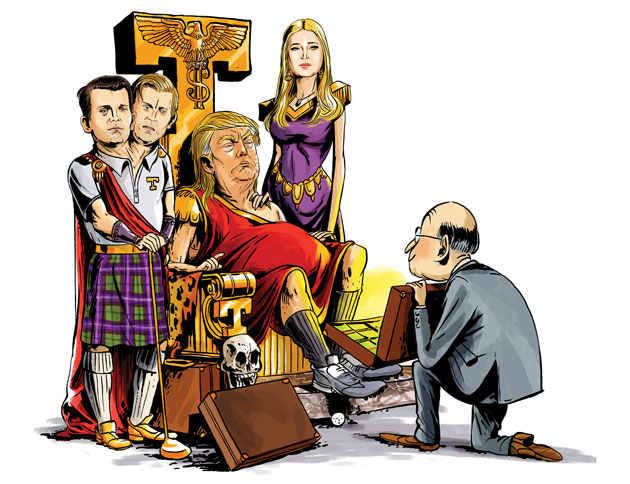Reflection: Week 4
This past week in our World Politics class, we discussed in Machiavelli’s book, The Prince. The main question that circulated amongst ourselves was “is Machiavelli right or wrong?” If you refer to my previous post, you will read my thoughts on that matter. I would instead use this post to discuss how Machiavelli’s advice on being a powerful and successful leader pertains to the United States’ government, more specifically its’ president, Donald Trump.
Currently, our country is being represented by a man who pushes the limits on democracy. Just recently, Trump contacted the Ukrainian president requesting sensitive information on a Democratic presidential candidate—that is Joe Biden. However, during a press release, Trump kept reiterating that it was a “partisan” whistleblower and that he would not disclose any further information(Rucker, Philip, et al.). Besides, this is not the first time that Trump acted in this manner. Not too long ago, Washington was confronted with the Mueller investigation and testimonies. Mueller—after a few hearings—confessed that Trump did indeed colluded. Once again, we see this happening. Instead of owning up to his wrongdoings, Trump noticeably attempted to direct the conversation towards Biden and his son. It is relatively clear that Trump is struggling to maintain control; hence, he is not afraid to go against his country for his personal gain. Relating back to Machiavelli, in the book, it mentions that a leader must “defend his state with armies that are made up of his own subjects, or of mercenaries, or of auxiliary forces” (38), and “make a list of all the crimes you have to commit and do them all at once” (30).
In various ways, Trump follows these. For instance, when Machiavelli mentions that a leader must be composed of his own army, Trump has done just that with his cabinet. In the time that Trump has been in office, there have been several acting cabinet members who are since Trump forced members to resign since their thoughts do not support Trump’s. In other words, Trump attempts only to hire those that will agree with his actions and support any erratic decision that Trump makes. Is this what Machiavelli stated with creating one’s army?
However, the one advice that Trump did not follow like the previous one is to “make a list of all the crimes [he should] commit and do them all at once” (30). Rather than behaving erratically at the beginning, Trump has continuously acted erratically, which not only portrays him as unstable, but it also affects the American people. For instance, Representative Eric Swalwell said in a Washington Post article that “‘I mean, you’ve got kids in cages — we’re [Democrats] trying to deal with that. We’ve got the continued mass shootings, and he [Trump] won’t help us with that. And then you’ve got the urgency of this [oversight]. So, I mean, it’s really just kind of, where do you prioritize your resources and your time?” (Rucker, Philip, et al.). The American people are aware of Trump's behavior, but the big question that always lingers: ‘what will Trump do next?’ However, the thing that people most fear is not Trump’s inconsistency rather what actions he decides.
It is safe to say that Machiavelli’s book, The Prince, can still pertain to current day politics. I may have mentioned that it does not, however, the more that I analyze the contents of the book, it is evident that even though countries are not attempting to gain territories, but they are attempted to gain control. It is a different period. However, human nature has not changed.
Bibliography:
Rucker, Philip, et al. “Trump's Ukraine Call Reveals a President Convinced of His Own Invincibility.” The Washington Post, WP Company, 21 Sept. 2019, https://www.washingtonpost.com/politics/trumps-ukraine-call-reveals-a-president-convinced-of-his-own-invincibility/2019/09/21/1a56466c-dc6a-11e9-ac63-3016711543fe_story.html.

Comments
Post a Comment